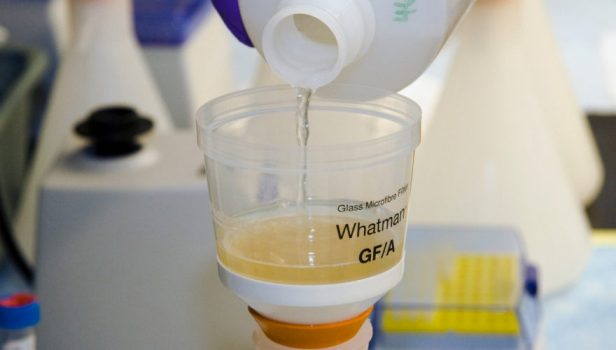N.C. State receives $7.4 million grant to establish PFAS research center
By Greg Barnes | NC Health News | March 18, 2020

Read the full article by Greg Barnes (NC Health News)
“During the past few years, researchers at N.C. State University have taken blood and tap water samples from people in the Wilmington and Fayetteville areas to assess their exposure to GenX and other PFAS chemicals.
Now, with a $7.4 million federal grant announced this month, they plan to dive even deeper into how these ‘forever chemicals’ could be affecting the health of an estimated 200,000 people who rely on the Cape Fear River or nearby private wells for their drinking water.
‘This is a really important grant because it’s a very important topic for North Carolina,’ said Carolyn Mattingly, who heads N.C. State’s Department of Biology. ‘It’s also becoming clear that this is happening in lots of communities. These compounds are ubiquitous and it’s really important that we learn about them.’
Mattingly will lead the new Center for Environmental and Human Health Effects of Per- and Polyfluoroalkyl Substances (PFAS) at N.C. State.
The center was made possible by the grant from the National Institute of Environmental Health Sciences’ Superfund Research Program. It will bring together collaborators from N.C. State and East Carolina University to study PFAS toxicity and bioaccumulation, as well as how the chemicals move in the environment and how to get rid of them.
Searching for understanding of effects
Researchers have found PFAS throughout the Cape Fear River basin, including Jordan Lake, which supplies drinking water to Cary, Apex, Chapel Hill and other nearby cities.
There are an estimated 5,000 types of PFAS, all of which are man-made. Little is known about their health effects on humans, but lab studies show they may cause liver, pancreatic, thyroid and testicular cancer in animals, as well as other diseases.
PFAS are used to make nonstick and water or grease-resistant household products, including pizza boxes, microwave popcorn bags, Teflon pans, firefighting foams, stain-proof carpets and weather gear.
A team led by Detlef Knappe, a researcher at N.C. State, published a study in 2016 about extremely high levels of GenX and other PFAS it discovered in the Cape Fear River downstream of the Chemours chemical plant near the border of Cumberland and Bladen counties.
Since then, researchers and state regulators have been grappling to cut off industrial sources and determine the potential effects of PFAS on human health and the environment.
Mattingly said the new research center will go a long way to help with those efforts. She said it will take a few months to bring everyone together before the center is up and running.
‘I think there’s going to be some really, really important information coming out around N.C. State in the coming years on this topic,’ she said. ‘Together, I think we will be much more impactful than people doing things in a nonunified sort of way.’
Beyond blood tests
In part, Mattingly said, the center will expand on existing projects, such as the studies measuring PFAS levels in subjects’ blood coming out of Wilmington and people whose private wells are contaminated near the Chemours plant…”
This content provided by the PFAS Project.
Location:
Topics: